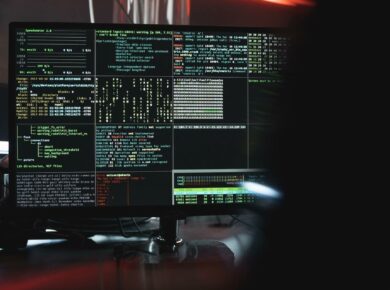Are you looking to pursue a career in cybersecurity? Well, you have chosen the perfect time to do so. With cybercrime rates growing, the demand for cybersecurity professionals is increasing as well. According to a report, global cybercrime costs will keep growing by 15% per year over the next four years. In 2012, the costs were $3 trillion, whereas, in 2025, they are predicted to reach $10.5 trillion.
To succeed as a cybersecurity professional, you need some general IT security skills, both technical and non-technical. To protect online data from threats, you have to be knowledgeable about hardware and software parts. In addition, research shows that 85% of job success comes due to well-developed soft skills. By combining the cyber security skills we will mention below you can secure the position you want to pursue and ensure your career success.
Computer Skills
Nowadays, nearly every job requires a basic understanding of computers. So, it goes without saying that a career that centers on protecting data will require such a skill as well. Still, as a cybersecurity specialist, you must have a deeper understanding of the modern electronic devices you use in comparison to other professions. This skill enables you to use electronic devices, access databases, manage files, use various spreadsheets, and code. The computer skills you have then open the door for you to develop and improve other cybersecurity skills.
Technical Skills
To be a good cybersecurity worker, you should possess some essential technical skills. First, you must be knowledgeable in reverse engineering, enabling you to patch bugs and conduct various malware analyses. As a cybersecurity professional, you will create and test different applications. That is why it is also preferred for you to have skills in application design. And lastly, you should also have deep knowledge of hardware and software firewalls. This way, you can install and maintain different firewalls that control the network of the company. Employers also expect you to detect anomalies or risks, hunt and manage them, so the data is safe.
Risk Identification and Management
Among the most important skills needed for cyber security are risk identification and management. When working in cybersecurity, you will encounter cyber attacks or data breaches. To minimize the losses, you have to identify the potential risks related to the technical infrastructure, such as hardware, systems, customer data, and others. You can do so by continually monitoring the networks and devices for any changes made.
Another effective way to identify risks is through a risk register. This register is a document that includes information on any potential cybersecurity risks that could harm your company. Many IT and cybersecurity professionals use risk registers as the main tool to prevent and manage cyberattacks.
Threat Hunting

To further improve the detection of risks, many companies are adapting cyber threat hunting functions and employing people with such skills. In fact, according to a study, the top priority goal of companies’ security is to improve their detection capabilities. About 43% deemed it a critical priority whereas, another 44% said it was of high priority.
When threat hunting, you can use various investigative devices that aid you in detecting threats. They help find triggers—system conditions that point you to a server or network that is in danger and needs further investigation. A great example of such a tool would be Endpoint Detection and Response.
Programming
The majority of entry-level cyber security jobs do not require programming skills. However, if you are thinking of advancing to medium or upper-level roles, then you will need this skill.
Because there are over 700 programming languages, it might be challenging to choose which ones you want to learn. But, no worries, we have compiled a shortlist of some essential programming languages for cybersecurity:
- Python
- HTML
- JavaScript
- SQL
- C++
Most of these programming languages are beginner-friendly and will be extremely helpful in your cybersecurity journey.
Leadership Skills
Strong leadership skills are necessary for cybersecurity job positions. You might not be a manager when you first start working in this field but through promotions, you could be leading others in the future.
✅ Request information on BAU's programs TODAY!
There are many traits associated with leadership skills. Generally, employers value workers who have ambition and can motivate others to reach collective goals. To be a good leader you must be decisive but also flexible when necessary. Furthermore, in the cybersecurity field, it is important to be innovative and courageous with your approaches, thus influencing the team that follows you.
Communication Skills

When working in cybersecurity, communication is crucial both during the recruiting process and after securing the job. Employers look for someone articulate, a good listener, and knows to ask the right questions. To have communication skills means to be able to interact well with different audiences. You should be able to match your speaking style to the audience, so they understand you and your explanations well.
Sometimes, communication and leadership skills are intertwined. When leading others, you must have good communication skills to answer their questions, explain tasks, and give feedback.
Research and Writing Skills
Each cybersecurity professional must have research and writing skills. The majority of tasks you will deal with need extensive research, especially when dealing with unfamiliar issues. To be successful in cybersecurity, you must always be up to date with new information regarding software developments and current technology trends.
Skills in writing are crucial when dealing with reports, emails, or other written content. They ensure you correctly state your findings and communicate everything clearly to your peers or supervisors.
Knowing what employers are looking for and developing those skills will help you stand out from the other candidates. Regardless if you are just getting started in studying cybersecurity or want to improve your skills for a promotion, a good mix of the technical and non-technical skills we have listed will ensure your success in the cybersecurity field and the battle against attackers.










